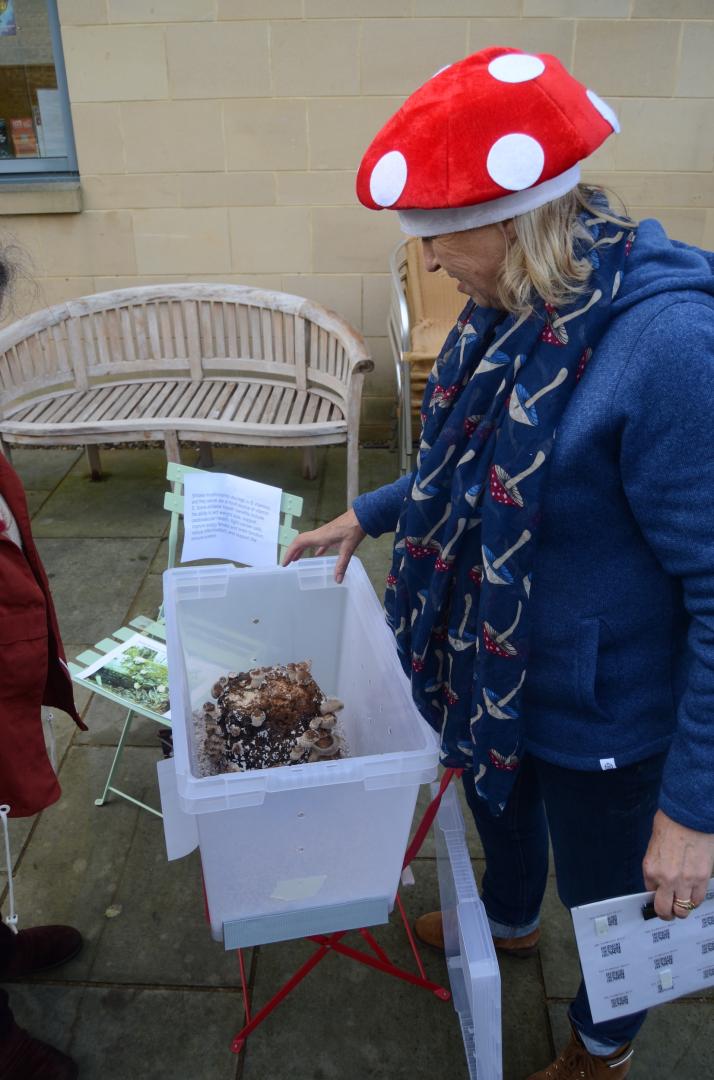When the North East Fungi Study group held an information day in Barnard Castle, curiosity got the better of reporter Nicky Carter”FUNGI are going to save the world.” That was the claim of one member of the North East study group of the British Mycological Society when members descended on Barney earlier this month.
The bold statement may seem outlandish at first. After all, how could a cap mushroom conquer all the world’s ills?
But delve a little deeper into the mysterious world of mycology (the study of fungi), as I did at the recent Explore Mycology event held at The Witham and you will find this view is shared by many scientific minds around the world.
“Without mushrooms we wouldn’t be where we are now,” said Cath Gillie, from the North East Study Group, who organised the free event to encourage more people to learn about fungi.
“We would be buried under fallen trees, the remains of animals and have infertile soil.
“Mushrooms are one the earliest forms of life on earth. Knowing about them is crucial.
“They are mass decomposers; mushrooms have been able to live and adapt to changing conditions on our planet and are the foundation to life as we know it.”
The event, which coincided with UK Fungi Day, was organised to encourage more people to get involved in mycology.
As well as a huge display of fungi- in all shapes, sizes, edible and poisonous -members of the study group were on hand to answer questions.
Forays into nearby Flatts Wood had been organised to see what mushrooms could be discovered close at hand and crafty folk were encouraged to create mushroom related artwork.
Ms Gillie added: “Fungi is really important and more and more research shows the wonders of fungi.
“Scientists are just now starting to discover some of the amazing benefits of fungi.”
Fungi, of which there are about 12,000 varieties in Britain alone, can sense light and flame, form relationships with other organisms and they can even hunt.
Despite being on earth for about a billion years, and with an estimated 3.8 million species, scientists have just scratched the surface of fungi’s amazing abilities.
New research from the University of Sheffield shows that the vast underground network of fungi is working as a massive carbon sink, storing 13 billion tonnes of carbon, equivalent to more than a third of the world’s annual fossil fuel emissions.
Scientists globally are also confident mushrooms will help “eat” away plastic pollution following recent bioremediation studies that included the edible Oyster mushroom.
Ms Gillie added: “Fungi are great, but people are sometimes put off from foraging because there are dangerous ones that are poisonous, however, there are more that have great health benefits.”
Indeed, studies have found that Lion’s Mane mushrooms contain two special compounds – hericenones and erinacines – that can stimulate the growth of brain cells and animal studies have also found this mushroom may help protect against Alzheimer’s disease.
And as well as being tasty, Shiitake mushrooms help reduce inflammation and are a great support to immune health.
The study group, which has about 35 members, was set up 26 years ago and as well as identifying and recording finds on a national database, they organise workshops and public information days to share knowledge.
Ms Gillie said: “We would like to do this open day as an annual thing. We are looking to come back again next year for UK Fungi Day and hopefully we will be in the main hall.”
For more information on the North East Fungi Study Group visit www.nefsg.co.uk.






